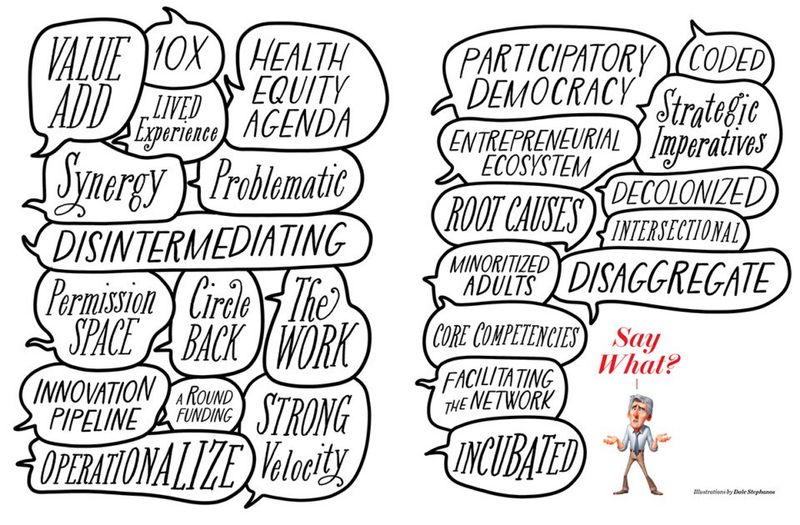Identifying a fool can be tricky, especially when arrogance and ignorance are intertwined. Here are 16 tell-tale signs that you’re dealing with someone who knows nothing but pretends to know it all. Read on to discover the quirky, annoying, and sometimes baffling behaviors that give a fool away.
1. Talking more than listening in every conversation
In every conversation, there are those who simply cannot stop talking. They dominate the room with their voice, drowning out anyone who might have something valuable to add. Their eagerness to hear their own voice is often mistaken for confidence, but in reality, it’s a sign of insecurity and ignorance.
While they talk, others might be rolling their eyes, waiting for a chance to speak. Unfortunately, that moment rarely comes. Instead of enriching the discussion, they make it all about themselves, missing the opportunity to learn.
This habit of talking more than listening not only annoys others but also keeps them in a bubble of their own making. It’s a classic sign of foolishness, wrapped in an illusion of intelligence.
2. Dismissing facts they don’t agree with
Some people reject any fact that doesn’t fit their worldview. It’s almost as if they’re allergic to reality. These individuals prefer to stick to their beliefs, no matter how outdated or incorrect they may be. They proudly wear their ignorance like a badge of honor.
Whenever someone presents evidence or logical reasoning, they dismiss it with a wave of their hand. It’s easier for them to reject facts than to adjust their understanding of the world.
In debates, this behavior is particularly frustrating. Others waste their breath, while the fool remains steadfast in their ignorance. It’s a frustrating scenario for those who value truth and reason over stubbornness and folly.
3. Interrupting others constantly to sound smarter
Interruptions are the hallmark of someone trying too hard to sound smart. They leap into conversations with little regard for what others might be saying. Their main goal is to impose their ideas, regardless of their worth.
This behavior not only breaks the flow of discussion but also highlights their lack of respect for others’ opinions. Instead of listening and reflecting, they jump in to showcase their so-called knowledge.
Often, their interruptions add no real value. They might speak loudly or use complex words hoping to impress, but they only reveal their ignorance and lack of depth. To many, this is a dead giveaway of foolishness and pretentiousness.
4. Overusing big words without understanding them
Some individuals wield big words like weapons, hoping to appear knowledgeable. Yet, they often misuse these words, revealing a lack of understanding. They string together complex vocabulary, but the meaning is often lost even to themselves.
Listeners might nod politely, but behind those nods lie confusion and amusement. The speaker aims to impress, but instead, they bewilder and sometimes annoy their audience.
This tendency to overcomplicate speech is a classic sign of pretentiousness. Instead of clear communication, they create a labyrinth of jargon, leaving others to wonder if they truly understand what they are saying. It’s a folly wrapped in verbosity.
5. Refusing to admit when they’re wrong
In the world of fools, admitting fault is akin to a cardinal sin. They clutch onto their beliefs and opinions with a grip so tight, reality itself cannot pry them loose. Even when proven wrong, they rarely back down.
Their refusal to admit mistakes is often seen as strength by some, but in truth, it’s a glaring sign of insecurity. The notion of being wrong terrifies them, so they bury their head in the sand and carry on.
For those who value growth and learning, this behavior is particularly disheartening. It halts progress and stunts personal development, as the fool remains trapped in their own delusion.
6. Mocking people who ask thoughtful questions
There are those who belittle others for seeking knowledge. They scoff at questions, especially the thoughtful ones that challenge the status quo. To them, questioning is a sign of weakness, not curiosity.
This mocking behavior is often a defense mechanism. It shields their insecure intellect from exposure. When faced with insightful inquiries, they laugh it off, hoping to hide their own ignorance.
By dismissing questions, they miss out on opportunities to learn. It’s a self-inflicted barrier to understanding, and it reveals the depths of their foolishness. True wisdom comes from questioning, not mocking.
7. Laughing off important topics as “boring”
Some individuals dismiss important conversations with a chuckle, labeling them as “boring.” They prefer light, shallow topics that require little thought or depth. It’s easier to laugh than to engage in meaningful dialogue.
By belittling significant issues, they reveal their inability to grasp complex ideas. This dismissive attitude not only frustrates others but also reveals a lack of intellectual curiosity.
In social settings, this behavior stands out. While others engage in productive discussions, the fool laughs at the sidelines, missing the chance to expand their understanding. It’s a classic portrayal of ignorance masquerading as indifference.
8. Giving advice they never follow themselves
Hypocrisy finds its home in those who offer advice they never apply to their own lives. They preach from a pedestal, yet their actions betray them. This disconnect between words and deeds is a trademark of foolishness.
Others might see them as wise mentors, but closer inspection reveals glaring inconsistencies. They know the right words to say, but living by them is an entirely different story.
This behavior not only diminishes their credibility but also undermines any wisdom they might possess. True authority comes from leading by example, not just talking the talk.
9. Insisting they’re “always right”
The assertion of being “always right” is not a badge of honor but a glaring red flag. It’s an impenetrable wall of ego, shutting out growth and understanding. Those who claim infallibility often shield themselves from reality.
In debates, they resist all evidence to the contrary, gripping tightly to their self-proclaimed truth. This stubborn adherence to being right creates an unyielding barrier against learning.
For those around them, interaction becomes a tiresome game of proving the obvious. The insistence on being right at all costs is a clear sign of foolishness, hiding behind a facade of certainty.
10. Changing their story when challenged
Shifting narratives are a common trait among fools trying to save face. When their story is questioned, they adeptly alter details to suit the moment. This lack of consistency reveals a shaky foundation of understanding.
Listeners might notice small discrepancies, leading them to question the speaker’s authenticity. What begins as a small lie, snowballs into a tangled web of confusion and mistrust.
This behavior not only undermines their credibility but also erodes trust. A constant need to change the story is a clear indication of someone who lacks true knowledge and integrity.
11. Overreacting to constructive criticism
Constructive criticism is a gift to those who wish to grow, yet some react to it as if it were a personal attack. Their defensiveness is instantaneous, shutting down any possibility for improvement.
Instead of viewing feedback as an opportunity, they see it as an affront to their inflated self-image. This overreaction often stems from insecurity, an inner fear of inadequacy.
Colleagues and friends might tread lightly around them, avoiding honest discussions. Unfortunately, this reactionary behavior only serves to stunt their development, ensuring they remain stuck in their ways.
12. Believing confidence equals competence
Confidence can be deceiving. Some believe that projecting assurance equates to competence. They strut into every room, asserting their opinions as gospel, regardless of their actual knowledge.
This misplaced confidence often leads others to follow blindly, mistaking bravado for skill. However, closer inspection reveals a lack of depth and understanding.
It’s a dangerous dance between perception and reality. Believing that confidence equals competence is a clear sign of foolishness, where loud voices overshadow true ability.
13. Using outdated stereotypes in serious conversations
Clinging to outdated stereotypes is the hallmark of those who refuse to evolve. In serious conversations, they rely on clichés and generalizations, revealing a shallow understanding of complex issues.
This reliance on stereotypes not only offends but also stalls meaningful dialogue. They create barriers, preventing any real progress or understanding.
While others move forward, they remain stuck in a past that never really existed. Relying on stereotypes is a sign of a limited mind, unwilling to explore the nuances of modern reality.
14. Arguing loudly instead of logically
For some, volume substitutes for logic. They raise their voices, believing that loudness equates to correctness. This aggressive posturing overshadows reasoned debate, leaving others unwilling to engage.
Their loud arguments might intimidate some, but they fail to persuade those who value facts and clarity. Instead of convincing, they alienate and frustrate.
This reliance on volume over logic is a glaring sign of ignorance, where shouting masks an inability to reason. True strength in argument lies in logic, not decibels.
15. Avoiding books, learning, or new ideas
A true fool shies away from growth. They avoid books, dismissing them as boring. New ideas are brushed off as irrelevant. This aversion to learning is both a cause and a consequence of their ignorance.
In a world brimming with knowledge, they choose to remain in the shadows, comfortable in their bubble. This steadfast refusal to engage with new concepts limits their horizons.
Such behavior reveals a deep-seated fear of change, where ignorance is mistaken for bliss. True wisdom lies in exploration, not in avoidance.
16. Confusing arrogance for intelligence
Arrogance often masquerades as intelligence. Some strut through life with an air of superiority, convinced of their own brilliance. Yet, their arrogance blinds them to their flaws and gaps in knowledge.
In social settings, this attitude alienates rather than impresses. Others might humor them, but behind the nods lie skepticism and disbelief.
Confusing arrogance for intelligence is a common folly. It’s a mask that hides insecurity and reveals a lack of true understanding.

















